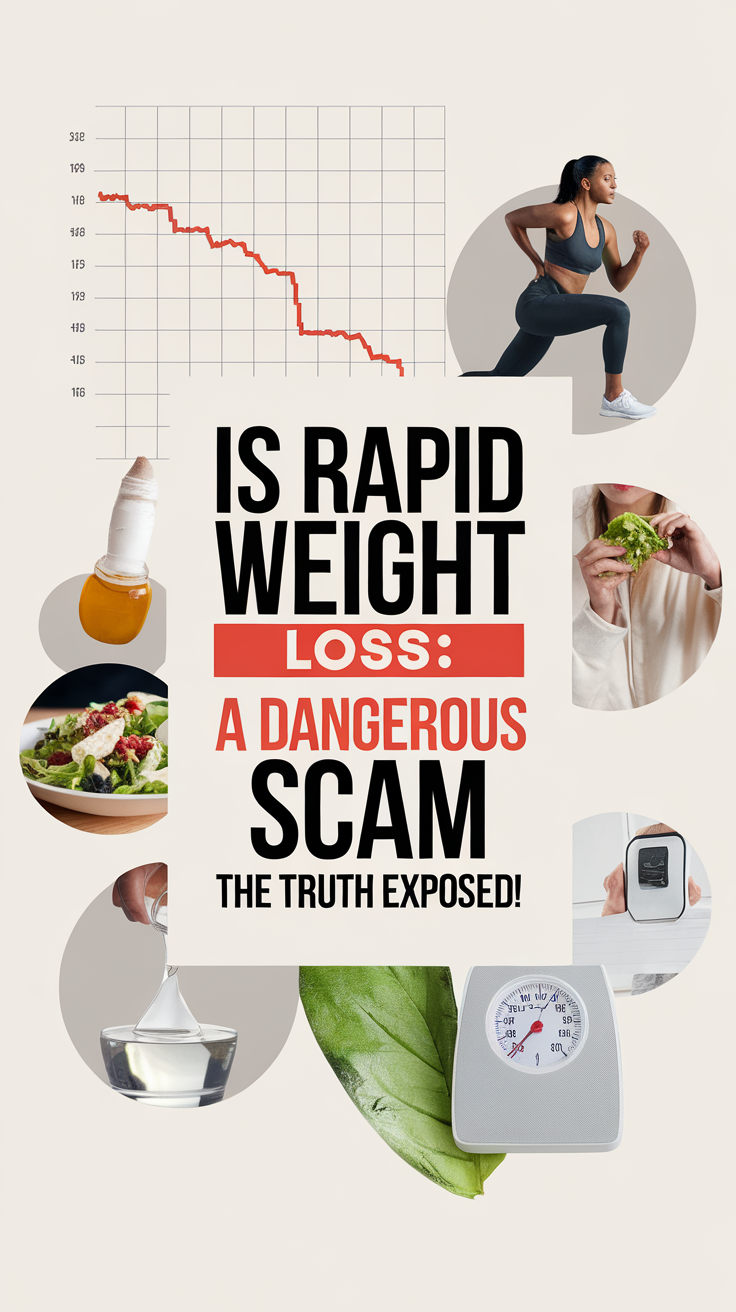Is Rapid Weight Loss a Dangerous Scam. The Truth Exposed!
Rapid weight loss often presents itself as an easy solution, but it can be fraught with danger. Many claims rely on gimmicks, neglecting sustainable principles and putting your health at risk. You might face nutrient deficiencies, muscle loss, and other serious issues from quick-fix diets. Plus, marketing scams, like magic pills and detox diets, further mislead you. Understanding these factors can help you make better choices; uncover more about safe weight management options.
Understanding Rapid Weight Loss Claims
When you hear claims about rapid weight loss, it’s easy to feel intrigued, but you should approach these promises with caution. Many programs tout miraculous results, often relying on gimmicks rather than solid evidence.
You might find products that promise quick fixes, but they often neglect the fundamental principles of sustainable weight loss. These claims can be misleading, preying on your desire for immediate results.
Instead of chasing after fleeting trends, focus on building healthy habits that promote long-term success. It’s essential to scrutinize these claims critically.
Ask yourself: Are they backed by science? Do they prioritize your well-being? By understanding the nature of these promises, you can navigate the weight loss landscape more effectively, avoiding potential pitfalls and scams.
The Science Behind Weight Loss
Understanding the science behind weight loss can empower you to make informed decisions. At its core, weight loss occurs when you create a calorie deficit, meaning you burn more calories than you consume.
This process involves understanding your basal metabolic rate (BMR), which is the number of calories your body needs to maintain basic functions. Factors like age, gender, and muscle mass influence your BMR.
Additionally, macronutrient composition plays a vital role; proteins, fats, and carbohydrates affect satiety and energy expenditure differently.
Exercise not only aids in calorie burning but also enhances muscle mass, boosting your metabolism.
Health Risks Associated With Quick Weight Loss
Although rapid weight loss might seem appealing, it often comes with significant health risks that can undermine your overall well-being.
You may experience nutrient deficiencies since extreme calorie restriction limits essential vitamins and minerals. Additionally, rapid weight loss can lead to muscle loss, which slows your metabolism, making it harder to maintain weight in the long run.
Dehydration is another common issue, as quick fixes often promote fluid loss rather than fat loss. You might also face gallstones, heart palpitations, or hormonal imbalances, all of which can have lasting effects on your health.
Ultimately, prioritizing sustainable weight loss methods won’t only protect your health but also help you achieve lasting results.
Common Marketing Scams in the Weight Loss Industry
While many weight loss products promise miraculous results, you should be cautious, as many of these claims are nothing more than marketing scams. Understanding these common scams can help you navigate the industry effectively.
| Scam Type | Description | Red Flags |
|---|---|---|
| Magic Pills | Promises rapid weight loss with no effort | No scientific backing |
| Detox Diets | Claims to flush out toxins for weight loss | Extreme restrictions |
| Celebrity Endorsements | Relies on fame rather than efficacy | No real results shared |
| Meal Replacement Shakes | Promises convenience without real nutrition | High sugar content |
Stay informed and skeptical. Your journey toward mastery in weight management begins with recognizing these tactics.
Sustainable Approaches to Weight Management
When you focus on sustainable approaches to weight management, you’re setting yourself up for long-term success rather than temporary fixes.
Embrace a balanced diet rich in whole foods, lean proteins, and healthy fats, while keeping processed foods to a minimum.
Establish a regular exercise routine that you enjoy, making it easier to stay committed.
Mindfulness techniques can help you develop a healthier relationship with food, allowing you to recognize hunger cues and emotional triggers.
Set realistic, achievable goals and celebrate your progress.
Remember, consistency is key; small changes accumulate over time.
Surround yourself with a supportive community, and don’t hesitate to seek professional guidance when needed.






